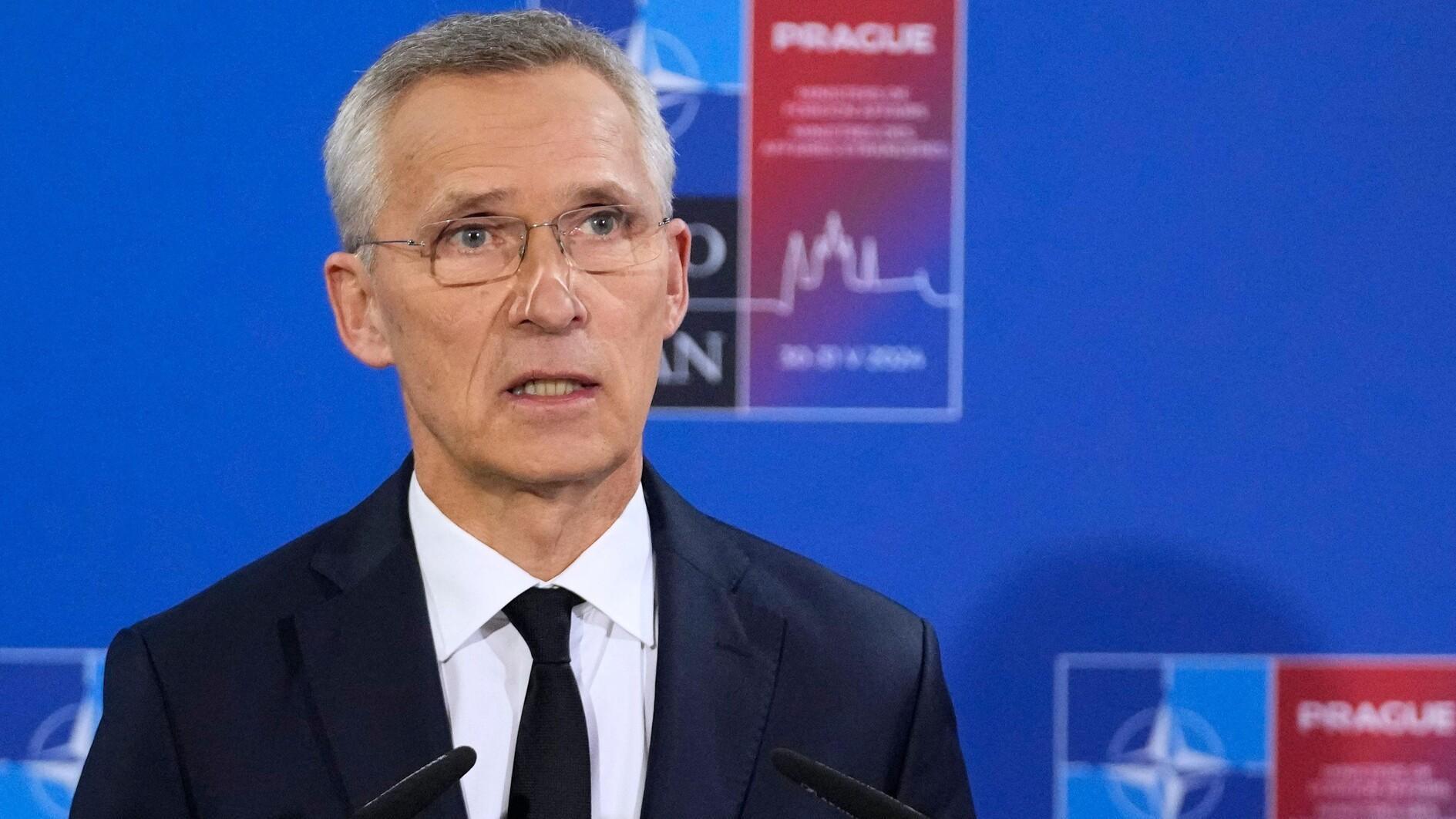
Ukraine was fully within its rights to launch its surprise offensive into Russia's Kursk border region as an act of self-defense, NATO chief Jens Stoltenberg told German newspaper Die Welt.
The offensive launched on Aug. 6 caught the Kremlin off guard, with Kiev claiming to have captured dozens of settlements and more than 1,200 square kilometers (nearly 500 square miles) of territory.
"Ukraine has a right to defend itself. And according to international law, this right does not stop at the border," Stoltenberg said in an interview with Die Welt published Saturday.
"The Russian soldiers, tanks and bases there (Kursk) are legitimate targets under international law."
The offensive also surprised Kiev's allies, with Stoltenberg saying Ukraine "did not preview its planning" with NATO and that the Western military alliance "played no role".
Stoltenberg also welcomed Germany's commitment to remain Ukraine's largest European military donor and second-largest worldwide, as Berlin prepares cuts to its aid to Kiev in next year's budget.
Chancellor Olaf Scholz's government came under fierce criticism for the decision last week. He says Germany will continue to supply the outgunned and outmanned Ukrainian military with the equipment it needs.
Deadly strikes hit Russian, Ukrainian border cities
Aerial strikes on Russian and Ukrainian border cities killed at least a dozen people on Friday, bombardments that came as Kiev dismissed its air force commander in a major military shake-up.
Both sides also claimed to have advanced on the battlefield — Moscow in eastern Ukraine and Kiev in its shock offensive into Russia's western Kursk region — with the fighting showing no sign of subsiding, two and a half years into Russia's invasion.
A Russian aerial strike on the northeastern city of Kharkiv on Friday afternoon killed seven people, including a 14-year-old girl, Ukraine's interior minister said.
Emergency workers were still pulling bodies from the rubble late on Friday evening. Images on social media showed the top floors of a multi-storey residential building ripped open and a fire raging after the strike.
At least 77 were wounded, including 18 children, the emergency services said.
President Volodymyr Zelensky called on Kiev's Western backers to up their support after the attack, which officials said was with a glide bomb.
"We need strong decisions from our partners to stop this terror," Zelensky said in a post on social media.
"We need long-range capabilities," he added, referring to Kiev's appeals to allies to lift restrictions on the use of Western-supplied missiles inside Russian territory and deliver more longer-range weapons.
"We need the implementation of air defense agreements for Ukraine. This is about saving lives," he added.
Belgorod hit
Across the border some 60 kilometres (37 miles) to the north, Russia said Ukraine had fired cluster munitions on the city of Belgorod and its suburbs, killing at least five and wounding 37 civilians, including at least six children.
"One woman and four men died of their wounds on the spot before an ambulance arrived," regional governor Vyacheslav Gladkov said in a post on Telegram.
He posted a video showing a fire raging at a house after one of the strikes. The state-run TASS media agency posted pictures of a road in the city of Belgorod covered in strewn debris and twisted metal.
Both Belgorod and Kharkiv have been hit repeatedly with aerial strikes throughout the war.
Russian President Vladimir Putin in May launched a new offensive into the Kharkiv region which he said was designed to push Ukrainian forces back to create a "security zone" for Russia's own border settlements.
Moscow's troops also claimed Friday to have captured three more villages in eastern Ukraine — one in the Kharkiv region — as they press against Ukrainian troops facing manpower and ammunition shortages.
Ukraine also claimed on Friday to have advanced in Russia's western Kursk region, where it is mounting its own surprise ground offensive, claiming to have captured 100 settlements and more than 1,200 square kilometres of territory since Aug. 6.
Commander fired
Zelensky on Friday dismissed the country's air force chief, a day after Kiev said a U.S.-made F-16 fighter jet had crashed in combat, killing the pilot.
In a video message Zelensky said he had "decided to replace the commander of the air force" to strengthen Ukraine's military leadership.
His office earlier published a presidential decree to officially remove Mykola Oleshchuk from the post.
The crash of the F-16 was a high-profile setback for Kiev, which had lobbied the West to send the advanced fighter jet for months.
The military had said the plane and pilot crashed during a combat mission earlier this week after having shot down incoming Russian missiles.
Zelensky did not provide further details on why he had decided to replace his air force commander, saying only that his command team "needed to get stronger".
Lieutenant General Anatolii Kryvonozhko, who leads the air force's operations in the central part of Ukraine, has temporarily assumed the role of overall commander.
Kiev also on Friday issued a plea for Mongolia to arrest Putin when he visits the country next week.
It is the Russian leader's first trip to a country that is a member of the International Criminal Court (ICC) since The Hague-based body issued an arrest warrant for him last year over the alleged deportation of Ukrainian children to Russia.
Mongolia is technically obligated to detain him, though the Kremlin said Friday it was not concerned about that possibility and there is little the ICC can do if it chooses not to.